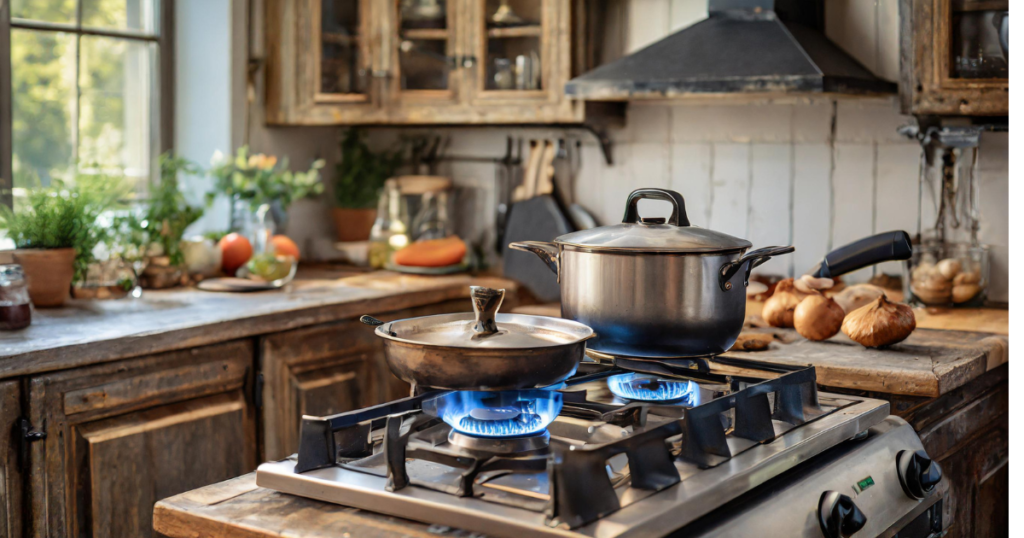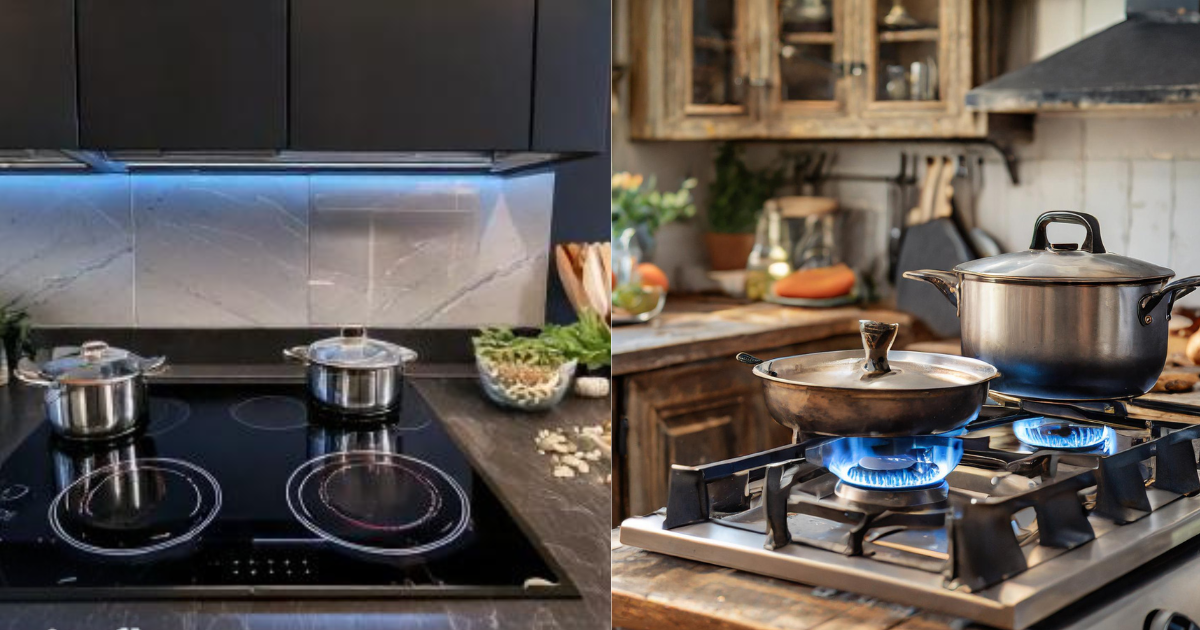
Table of Contents
When it comes to choosing a cooking method for your kitchen, the debate between electric cooking and gas cooking is a common one. Both have their advantages and challenges, and selecting the right option depends on your cooking habits, kitchen design, and even the energy sources available in your home. In this article, we’ll break down the differences between electric and gas cooking, highlighting the pros and cons of each to help you make an informed decision for your kitchen.
Understanding the Basics of Electric and Gas Cooking
Before diving into the advantages and disadvantages of each type, let’s understand what makes each cooking method unique.
- Gas cooking uses an open flame fueled by natural gas or propane. It offers instant heat and precise temperature control.
- Electric cooking uses electricity to heat coils or smooth cooktops. It provides a consistent heat source but can be slower to heat up compared to gas.
If you’re unsure whether an electric or gas stove is best for you, consider looking at different stove types. For a detailed overview of the stove options available, check out our guide on 9 Types of Stoves and How to Choose One for Your Home.
Advantages of Gas Cooking
Gas cooking is favored by many professional chefs and home cooks for several reasons. Here are the main benefits:
1. Instant Heat and Temperature Control
One of the most significant advantages of gas cooking is the ability to instantly adjust heat levels. With gas burners, you can easily increase or decrease the flame, giving you more precise control over your cooking.
2. Even Cooking
Gas stoves distribute heat evenly across the bottom of your cookware, reducing hot spots that can lead to uneven cooking. This makes it ideal for dishes that require careful attention, such as sauces or delicate foods.
3. Energy Efficiency (in Some Cases)
For some users, gas may be more energy-efficient because it doesn’t require electricity. If you’re cooking during a power outage, a gas stove remains functional, providing continuous heat for meal preparation.
4. Compatibility with Various Cookware
Gas stoves can accommodate all types of cookware, including cast iron, copper, and stainless steel, making them versatile in the kitchen.
If you’re thinking about gas as a cooking option, it’s worth exploring the different types of gas stoves available. Learn more about the various stove models in our article 9 Types of Stoves and How to Choose One for Your Home.
Advantages of Electric Cooking
Electric stoves offer several benefits that may appeal to those who value convenience and modern technology. Let’s look at the main advantages:
1. Even Heat Distribution
Electric stoves typically provide even heat distribution, especially those with smooth ceramic cooktops. The heat is evenly spread across the surface of the pan, making it ideal for precision cooking.
2. Easy to Clean
Unlike gas stoves, electric stoves have smooth, flat surfaces that are much easier to clean. Without the need to remove burners, you can simply wipe down the stovetop with a damp cloth after use.
3. Safety Features
Electric stoves do not involve an open flame, which reduces the risk of accidental burns or fire hazards. Modern electric models come with safety features such as automatic shut-off functions and indicator lights to show when the surface is still hot.
4. More Affordable (Generally)
In most cases, electric stoves are less expensive upfront compared to gas stoves. Additionally, they are easier to install, which can lower overall setup costs.
For a detailed comparison of electric vs. gas cooking, including the pros and cons of different stove types, explore our article 9 Types of Stoves and How to Choose One for Your Home.
Key Differences Between Electric and Gas Cooking
Now that we’ve covered the advantages, let’s highlight the main differences between electric and gas cooking:
| Feature | Gas Cooking | Electric Cooking |
| Heat Time | Instant heat and control | Slower heat-up time |
| Temperature Control | Precise, with visual flame adjustment | Less precise, but steady heat |
| Cost | Generally higher installation and maintenance costs | Lower upfront costs and installation fees |
| Cleaning | Can be more efficient depending on the use | Easy-to-clean smooth surfaces |
| Energy Efficiency | Can be more efficient depending on use | Typically more efficient in steady cooking tasks |
Both electric and gas cooking have their unique benefits. Understanding these differences will help you decide which option is better suited to your kitchen needs.
Which Is Better for Your Cooking Style?
The choice between electric and gas cooking depends largely on your cooking style and preferences:
- Gas Cooking is ideal for those who prioritize quick heat adjustments and precise control. If you frequently cook foods that require high heat or love the ability to adjust instantly, gas may be the best choice for you.
- Electric Cooking is great for people who prefer a cleaner cooking environment and a more modern, sleek appearance. If you value convenience, safety, and easy maintenance, an electric stove may suit you best.
Other Factors to Consider
Besides the cooking experience, there are other factors you should consider when choosing between electric and gas:
If you have limited space, an electric stove with a smooth, built-in cooktop might be more suitable. These models take up less space and offer a more modern aesthetic.
On the other hand, if you have more room and are seeking versatility, a gas stove might work better, especially if you plan to do more heavy-duty cooking.
2. Long-Term Costs
While gas cooking may have a higher upfront cost, it could be more economical in the long term depending on local energy rates. Electric stoves, however, have lower installation costs but may result in higher monthly utility bills depending on your energy usage.
Conclusion
When deciding between electric vs. gas cooking, there are several factors to consider, including your cooking style, kitchen layout, budget, and energy availability. Both options have unique advantages, and ultimately, the right choice depends on your personal preferences and lifestyle.
For more detailed insights on stove types and how to choose the best one for your kitchen, don’t miss our article on 9 Types of Stoves and How to Choose One for Your Home. We break down the features, benefits, and considerations for each type, making it easier for you to make an informed decision.


1 thought on “Electric Cooking Vs Gas Cooking: Which Is Right for Your Kitchen?”